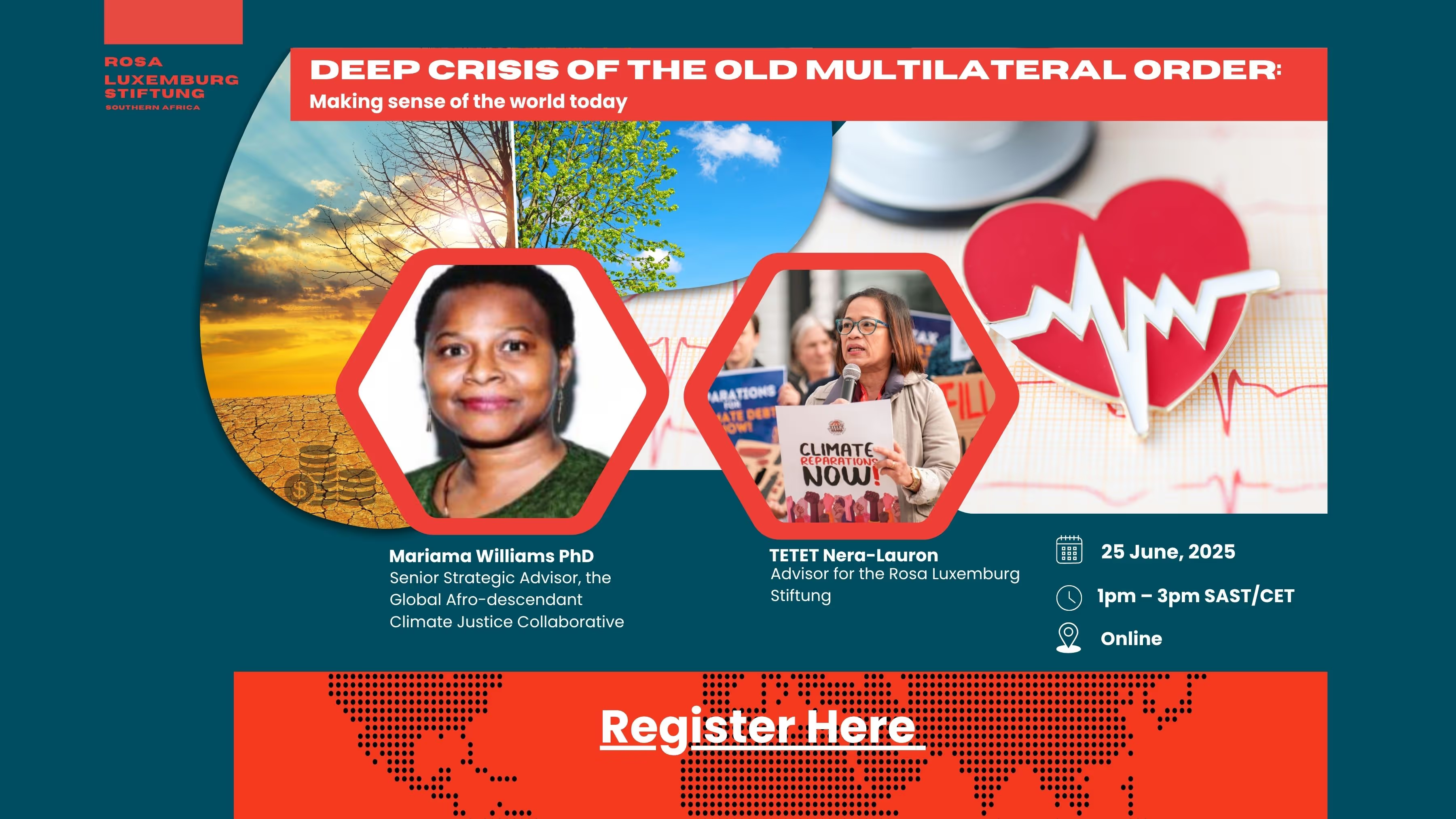
Deep crisis of the old multilateral order: making sense of the world today
By
RLS
We are presently confronted with a still metastasising socioecological Polycrisis that will affect humanity and our living systems for years to come. The facets of this crisis include a rightward drift in politics, a collapse of trust in the political elite, deepening metabolic rift, rising geopolitical tensions, a cost-of-living crisis, debt crisis and emerging public health risks (Covid-19, monkeypox, bird flu…) whose interactions negatively affect humanity’s prospects. The principal cause of this crisis is market capitalism under its current form. It enables predation on both man and nature, competition over scarce resources and international conflicts. Some consequences of these crises include significant loss of human lives, ecosystem destruction, and the rise of far-right politics fueled by unjustified anti-immigration sentiments. Responses to the global Polycrisis have been mixed. Some dominant actors from the Global North (e.g., the US) have promoted more individualism and direct attacks on multilateral institutions (WHO, ICJ, UNFCCC) and used their corporations to undermine global-consensus processes (the Paris Climate Agreement). While the Global South has proposed reforms in the composition and operation of important multilateral bodies (IMF, WTO, World Bank) and alternative multilateral processes such as BRICS, these often undergird the Western power structure by more decisively joining, and not genuinely changing, neoliberal-corporate multilateralism.
Global South countries have occasionally built non-neoliberal alternatives such as the Non-Aligned Movement, the Southern African Development Community (SADC originally forged by front-line states 45 years ago to oppose apartheid), alliances of Least Developed Countries and Small Island Developing States in climate negotiations, and various Latin American ‘Pink Tide’ experiments with trade, currency and investment. Even the BRICS are exploring trade in their own currencies, not using the dollar as intermediary. However, the West is taking revenge, especially seen as tariffs by the U.S. and cuts in aid – often vital health, food, climate-relief and humanitarian support - by the U.S., United Kingdom and EU, There have been Western attacks on regional blocs like the Economic Community of West African States (ECOWAS), and one result is extreme hostility by several governments to French and U.S. military activity. At the southern African level, criticisms have been directed at SADC for its inability to promote regional democracy and security, and for advancing imperial and sub-imperial agendas through its intervention in the conflicts in Cabo Delgado and the eastern DRC.
South Africa’s 2025 Presidency of the G20 occurs within the context of the global Polycrisis and the weakening of global multilateralism, exacerbated by the return of Donald Trump’s ‘paleo-conservative’ nativism to the White House. The themes selected by South Africa for its presidency – solidarity, equality, sustainability - demonstrate an acknowledgment and advancement of the interconnected nature of the world, the need for fair treatment and equal opportunities, as well as the collective responsibility for our planet. However, unless Trump is expelled (the way the West attempted with Vladimir Putin in 2014), the U.S. inheritance of the G20 presidency in 2026 and its current criticism of these themes already point to a difficult road ahead. Trump’s key advisor Elon Musk openly advocates the U.S. leaving the UN itself. Given the catastrophic economic, social, political, cultural and environmental climate in which we find ourselves collectively, we must undertake a thorough, patient and comprehensive analysis of the Polycrisis, along with the collective and inclusive strategies that have the potential to give us a fair world. Equally important, we must decipher the opportunities that these formidable challenges present.
Against this backdrop, the RLS-Johannesburg Office is organising a series of critical dialogues throughout 2025 to discuss key issues contributing to the decline of multilateralism and consider emerging progressive alternatives. The opening dialogue to the series focuses on the state of the global polycrisis seeking to make sense of the WTO's declining influence, US sabotage of UN climate, health, and finance agenda.
Speakers
Mariam Williams (Phd): Senior strategic advisor - The Global Afro-descendant Climate Justice Collaborative.
TETET Nera-Lauorn: Advisor for the Rosa Luxemburg Stiftung.
Date
25 June 2025
Time
13:00-15:00 SAST/CET
Venue
Online: register here



.png)

